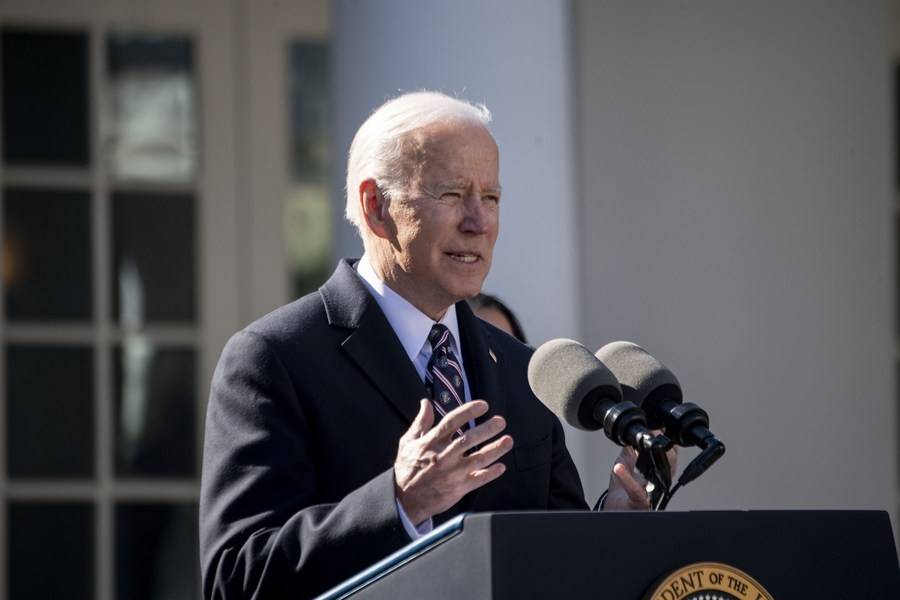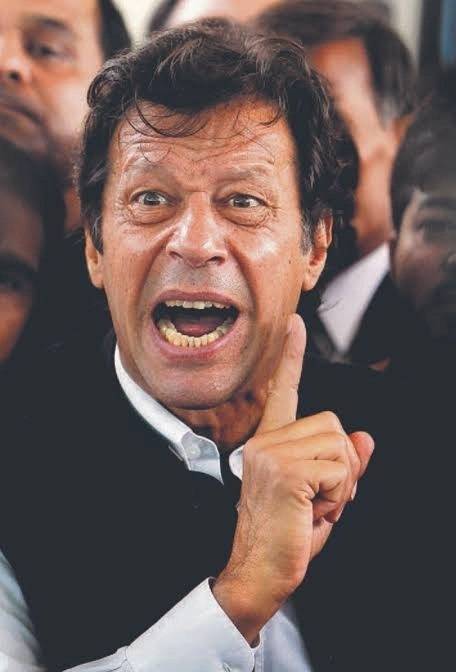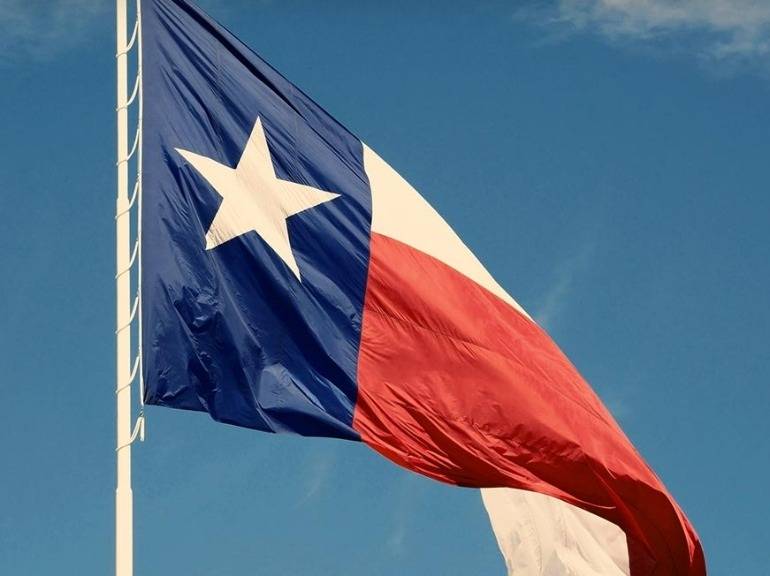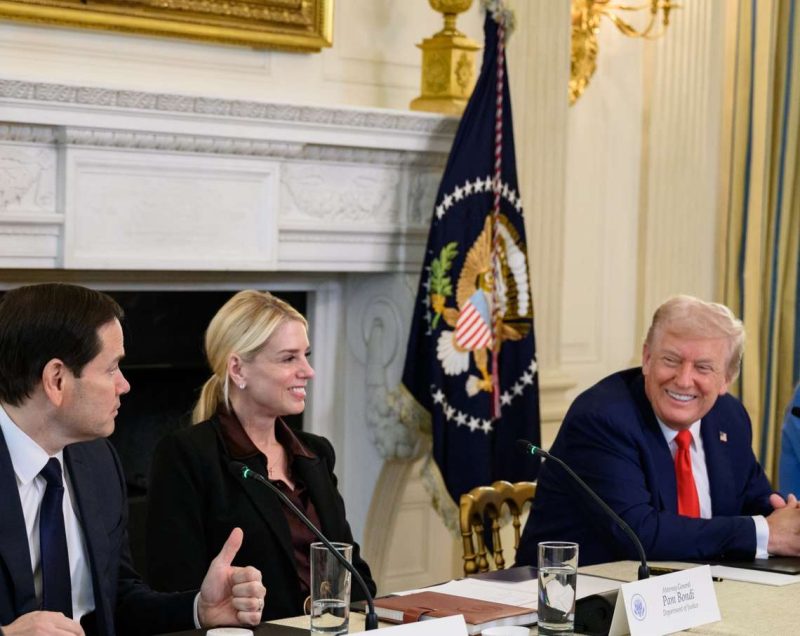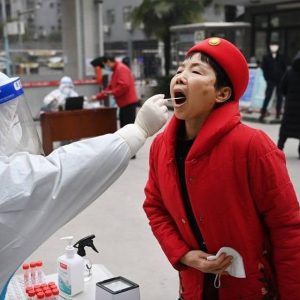Biden’s advisers are poring over Trump-era tariffs on hundreds of billions of dollars of Chinese goods – many of which they see lacking strategic value…reports Asian Lite News
President Joe Biden is considering scrapping tariffs on a range of Chinese goods to curb inflation, but no decision is likely before next week’s Group of Seven summit, people familiar with the matter said.
White House officials discussed options on Friday with Biden for reducing some of former President Donald Trump’s punitive duties on China, including potentially substantial cuts, three of the sources said. The scale of any potential final move is not yet decided, they said.
Biden’s advisers are poring over Trump-era tariffs on hundreds of billions of dollars of Chinese goods – many of which they see lacking strategic value, the sources said.
A White House spokesperson said the goal was to align the tariffs with U.S. economic and strategic priorities, safeguarding the interests of workers and critical industries, while not “unnecessarily raising costs on Americans.”
After weeks of fierce debate among key aides over the issue, Biden has come to favor swift action on the tariff issue, keen to use any leverage to reduce surging inflation ahead of the Nov. 8 midterm elections for control of Congress, two of the sources said.
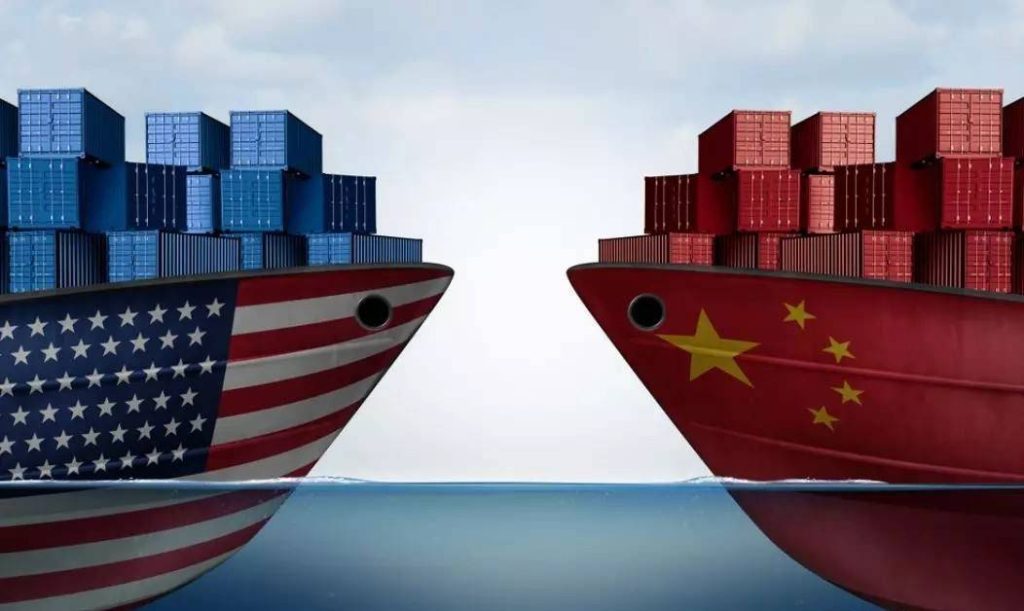
The president told reporters on Saturday that he was in the process of making up his mind.
“Conversations on this issue are ongoing and intensifying,” a senior administration official told Reuters. “But this is not a binary (choice to) lift all tariffs or don’t. It has to make sense strategically.”
Margaret Cekuta, a former U.S. trade official who is now a principal with the Capitol Counsel lobbying firm, said easing tariffs would likely have a limited impact on inflation and could take about eight months to become fully effective.
“Economically it doesn’t make sense, but it could help combat the psychological impact of high inflation,” she said, adding that the administration was trying to analyze which tariff lines could have the greatest impact on prices.
One administration proposal calls for eliminating a large chunk of Trump’s punitive tariffs on Chinese consumer exports, except those on $50 billion of goods tied to an initial so-called Section 301 probe, which focused on circuit boards, semiconductors, and other “strategic” goods, said one of the sources. The proposal also excluded changes to tariffs on steel and aluminum.
But it could remove tariffs on a large number of consumer goods hit with tariffs in 2018 and 2019 as Trump’s trade war with Beijing escalated – some $320 billion at the time they were imposed. These included internet routers, Bluetooth devices, vacuum cleaners, luggage and vinyl flooring.
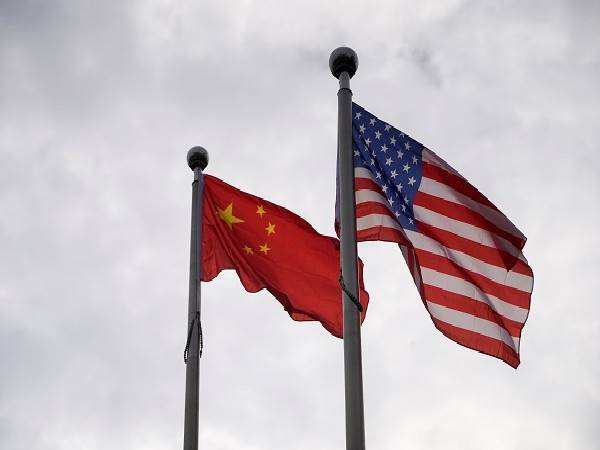
Ban on imports from Xinjiang to take effect
Imports from China’s Xinjiang region are due to be banned in the US from Tuesday as new rules come into forced.
Under the the Uyghur Forced Labor Prevention Act (UFLPA), firms will have to prove imports from the region are not produced using forced labour, the BBC reported.
US officials have said members of the persecuted minority Uyghur community in the region, who are predominantly Muslim, have been detained and made to work.
China has repeatedly rejected accusations that it is holding Uyghurs in internment camps in Xinjiang.
Several imports from the resource-rich region, including cotton and tomatoes, have already been banned from the US, the BBC reported.
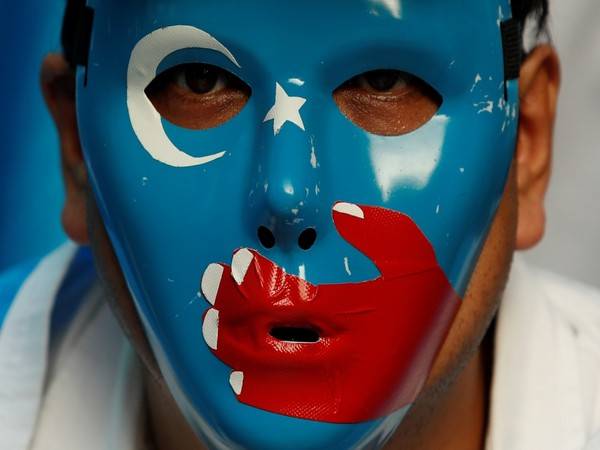
In a statement last week, US lawmakers said the law sends “a clear message that we will no longer remain complicit in the Chinese Communist Party’s use of slave labour and egregious crimes against humanity”.
“Congress stands ready to work with President Biden and his administration to ensure this historic law is fully and rigorously implemented,” US Republican Senator Marco Rubio, Democrat Senator Jeff Merkley and two other lawmakers said.
According to the US Congress, China has detained more than a million Uyghurs and other Muslim minorities in Xinjiang since April 2017, reports the BBC.
It believes tens of thousands of detainees have worked “at a fraction of minimum wage or without any compensation” in Xinjiang and other provinces “under the guise of poverty alleviation and industrial aid programmes”.
It said China also “interferes with audits and traditional due diligence efforts to vet goods and supply chains in Xinjiang, including by intimidating potential witnesses and concealing relevant information”.
China has denied the use of forced labour and said the camps in Xinjiang were “re-education” facilities used to combat terrorism.


